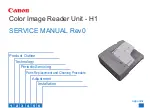
10
TRANSPORT AND STORING
Make sure there are no people, children and foreign objects around the area before transporting
the machine. Always take an extra caution during the transport. Ensure that the product is well
secured and that transport brackets are mounted. Always place the load as low as possible. Re-
spect the danger zone even during transport. When lifting the equipment, never go underneath
suspended loads. Trailer used for transport should have working brakes.
Always store the machine in a dry place preferably underneath a cover when not in use. Ensure
that the product is stable and not likely to tip over. Never let children play where the machine is
being stored. Always keep in mind the risk of tipping!
If the implement is heavily loaded, it may affect the stability of the towing vehicle. Be care-
ful when moving. Slow down in turns and watch out for bumps and speed bumps. Maximum
speed when towing is 30km / h. Keep the equipment in a place where people are not present
and never let children play around the parked machine.
MAINTENANCE AND SERVICE
Ensure that the unit is stable and cannot tip over during maintenance and service. Replace
damaged or worn parts immediately to reduce the risk of abrasion. The tractor engine must
be switched off and the equipment is lowered to ground level before working with the service
begins. Make sure the equipment is stable and not likely to tip over during maintenance and ser-
vice. Lubricate all moving parts and grease nipples and check hoses regularly. Check hydraulic
system and the condition of oil. Use only original replacement parts or spare parts with equiva-
lent performance to reduce the risk of damage. All repairs and connections with electricity must
be performed by a qualified person.Check all nuts and bolts are tightened after performning
maintenance and service. Always follow the maintenance safety regulations according to sched-
ule. It’s important to check the disc, given the danger that can occur if they come loose during
operation.
•
Regularly check the condition of the equipment before failure is a fact. Discovered cracks,
twisting, bending, gaps or fatigue stop the operation and rectify the errors. Worn parts
should be replaced.
•
Re-tighten all nuts and bolts after a few hours of driving and after a day of operation.
•
Disconnect the equipment from the towing vehicle when the fixing any faults.
•
Check that all bolts and nuts are tightened after maintenance and service. Always test the
machine before work is started.
•
Lubricate moving parts regularly.
•
Touch up with paint where metal or rust is visible
•
The gearbox is filled with oil and sealed at the factory. With proper use and storage gear
will last a long time and trouble free. If it should become necessary to disassemble the
gearbox, it is essential to fill with oil of good quality and that the transmission parts are
re-sealed with silicone glue.
RECYCLING
Disposal of the product, disassemble and transport to the municipality’s recycling station.
Contact your local authority for further information.










































